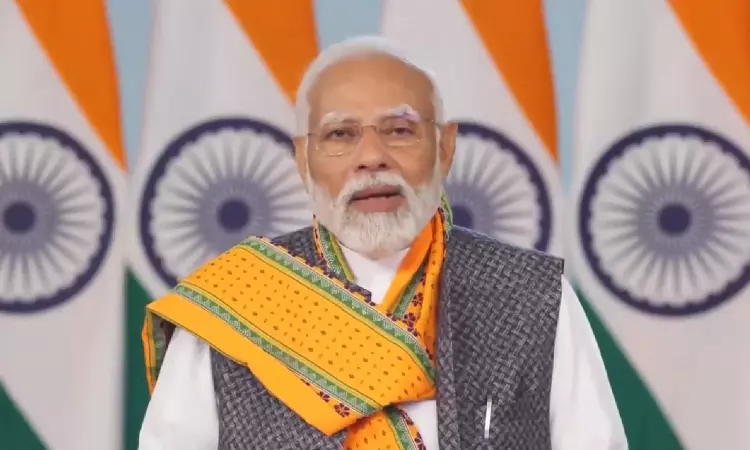Editorial: Afraid of Academics
This arbitrary denial of entry to a scholar came a week after journalist Vanessa Dougnac, a long-serving foreign correspondent for several French publications, was made to leave India

Prime Minister Narendra Modi (PTI)
It’s in the nature of dictatorships to have quibbles with critics and journalists, but elected autocracies, to which category India belongs, do allow a modicum of space to academics. However, akin to totalitarian countries, the Narendra Modi regime is becoming increasingly intolerant of foreign media attention as well academic enquiry. This is amply evident in the denial of entry to a number of visiting scholars and researchers in recent years.
This last Sunday, Prof Nitasha Kaul of the University of Westminster was detained at the Kempe Gowda International Airport in Bengaluru and put on a flight back to London after being subjected to hours of harassment and discomfort in a holding cell. Although she had an invitation from the government of Karnataka to speak at a pro-democracy conference, the authorities gave no reason for the denial of entry except to say they had “orders from New Delhi”. Prof Kaul, a Kashmiri Pandit, is a critic of the RSS and the Modi government’s military action in Kashmir.
This arbitrary denial of entry to a scholar came a week after journalist Vanessa Dougnac, a long-serving foreign correspondent for several French publications, was made to leave India. Her Overseas Citizen of India (OCI) card was revoked for no stated reason, which forced her to leave. Previous incidents in this vein have been similarly inexplicable. In July 2022, Lindsay Bremner, a professor of architecture at University of Westminster, was turned away despite having a valid research visa and never told the reason. A few months earlier, Filippo Osella, professor of South Asian studies at the University of Sussex, was told that a valid research visa and 30 years of previous work in Kerala, did not guarantee him an entry. He was put on the next flight out to Dubai with a guard accompanying him.
Of course, this hostility to foreign academics is not of recent origin. The BJP government has always been hostile to any sort of rigorous inquiry by foreign actors—while coveting fake WhatsApp videos of comely western women learning the Vedas or Sanskrit or the sitar. Amnesty International was kicked out on the ruse of foreign exchange violation; historian Audrey Truschke—despite her formidable Sanskrit scholarship—has been kept out with threats of violence after she wrote an even-handed bio of Aurangzeb; the writer Aatish Taseer’s OCI card was withdrawn after he wrote an essay for Time magazine titled ‘Narendra Modi: Divider in Chief.’
Seen together with the entire bouquet of repressive actions at home against home-grown dissenters, this renders the descriptor ‘banana democracy’ more accurate to this regime than ‘electoral autocracy’. No wonder then that the Academic Freedom Index Report for 2023 paints a grim picture of India. Among 179 countries, India’s academic freedom index ranks in the bottom 30% with a score of 0.38 that is lower than Pakistan’s 0.43. The decline in India’s score in the Modi years has been alarming on all five criteria the report monitors. Scholars at Risk, an international network dedicated to protecting scholars and promoting academic freedom, places India among 22 countries where academic freedom has significantly declined over the past decade.
This aversion to rigorous inquiry undermines India’s intellectual legacy. By restricting scholarly exchange, India risks becoming confined to a stifling cloister, susceptible to sweet but false words spoken into its ears.



